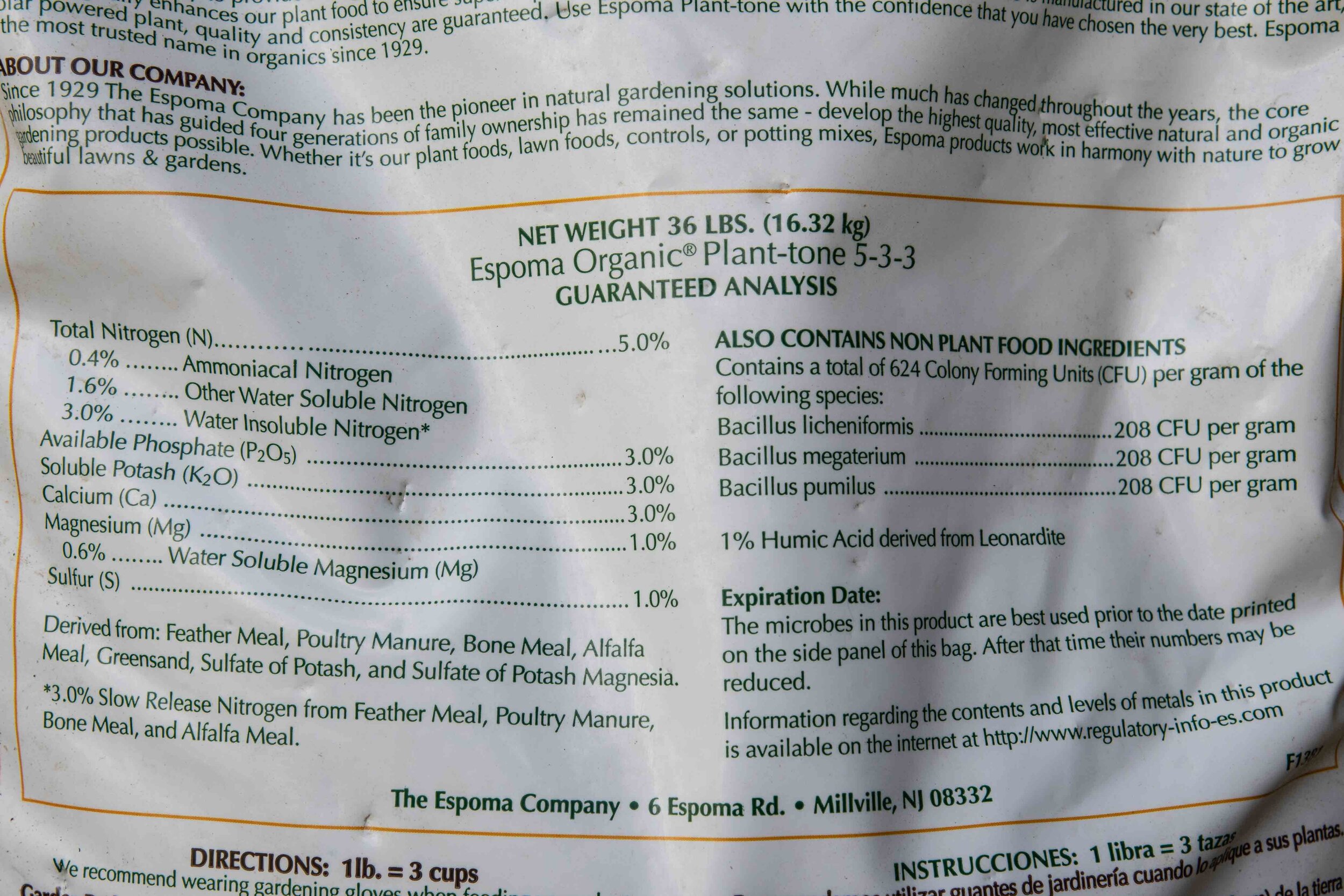by Mark Levisay
Espoma’s Plant-Tone is an organic all-purpose fertilizer with an N-P-K analysis of 5-3-3. In addition, it contains 3% calcium (Ca), 1% magnesium (Mg) and 1% sulfur (S). Unlike Holly-Tone, which I wrote about in a previous post, this product will not have a major influence on soil pH.
Espoma’s Plant-Tone organic fertilizer.
Almost 2/3 of the nitrogen (N) in this fertilizer is water in-soluble, or slow release. It comes from feather meal, poultry manure, bone meal and alfalfa meal which are all farm by-products. It’s great to be able to use these by-products but there is an unfortunate side effect. Our dogs think Plant-Tone tastes great, and we only use it in areas where the dogs can be fenced out.
Espoma’s “Bio-Tone” provides beneficial bacteria
In addition to the regular nutritional components, Plant-Tone and all of the other Espoma xxx-Tone products contain beneficial bacteria. This “Bio-Tone” component helps build and maintain a healthy biome in the soil. Plant roots depend on both bacteria and fungi to be able to access water and nutrients in the soil pore spaces. This biological activity breaks down the poultry manure and bone meal into molecules the plant roots can then take up into the plant. Since bacteria are alive, there will be a “best by” date on the bag. Over time the bacteria will become less active even though the other fertilizer components will still be effective.
Espoma Plant-Tone’s ingredients panel.
General purpose fertilizer
As an all-purpose fertilizer, Plant-Tone can be used anywhere in the garden on trees, flowers or vegetables. I use it almost exclusively in my vegetable garden, both at planting time in the soil or as a side dressing for growing plants on a monthly basis. We avoid it in our flower garden only because the dogs try to dig it up and eat it!
Espoma recommends using it on established plants like trees or shrubs in the spring, and then again in a lower amount in the fall. For specific application amounts and instructions, check the back of the bag, or go to espoma.com. For more information on the specific feeding requirements of individual plants go to the Virginia Cooperative Extension website at ext.vt.edu.
If you have any questions feel free to e-mail me at marklevisay@gmail.com
Happy gardening!

